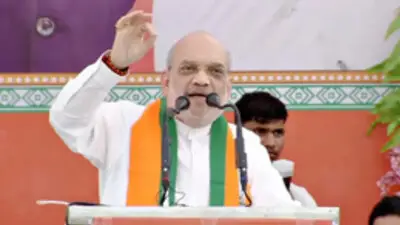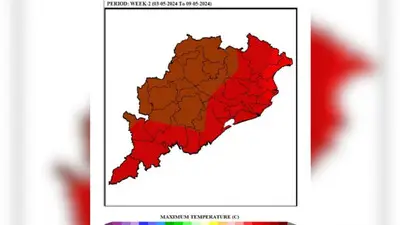Recommended Stories
The final G-20 communique that was issued after two days of hard bargaining was a compromise worked out between the member countries, as it excluded key indicators like foreign exchange reserves and fiscal deficit at the insistence of China.
"There were differences, therefore in this communique, it was agreed that we will try to identify and complete the process (of selecting indicators) by April," Indian Finance Minister Pranab Mukherjee said after the G-20 meeting of Finance Ministers and Central Bank Governors.
"It has not been simple. There were obviously divergent interests, but we were able to reach a compromise on a text," French Economy Minister Christine Lagarde said.
Sitting on huge foreign exchange reserves, China does not want these to be included as one of the parameters for tracking and correcting structural flaws to reduce global trade imbalances.
China is sitting on USD 2.8 trillion worth of forex reserves and is accused by the US of manipulating its currency, the yuan. "Our aim is to agree, by our next meeting in April" on a set of indicative guidelines to ensure orderly economic growth, the communiqu? said.
Taking on board India`s concerns over rising commodity prices, the resolution called for stepping up investment in the agriculture sector of developing countries.
Faced with double-digit food inflation, India also pressed for a coordinated approach to tackle food, commodity and oil price volatility, which make emerging economies "vulnerable".
The issue was raised by Mukherjee, who said that "India did not contribute to the build-up or persistence of global imbalances", but "found no room for comfort in tackling food inflation" in the backdrop of high international prices.
Commodity prices increased by 20 to 30 per cent in 2010, according to International Monetary Fund (IMF) estimates.
The communique issued said: "We discussed concerns about the consequences of potential excessive commodity price volatility... We reiterated the need for long-term investment in the agriculture sector in the developing countries."
The ministers also agreed on a plan to strengthen the international monetary system (IMS) with regard to disruptive capital flows and disorderly movement in exchange rates, a matter of great concern to India.
"Today, we agreed on... strengthening the functioning of IMS... mindful of possible drawbacks and management of global liquidity to strengthen our capacity to prevent and deal with shocks...," the communiqu? said.
The document also expressed concern over the impact of rising oil prices, which have exceeded USD 100 per barrel.
It has been decided to call a meeting of the G-20 Energy Ministers to deliberate on the problem of rising crude oil prices in the international market.
As far as tax evasion and unearthing ill-gotten money is concerned, Mukherjee said that about 500 tax information exchange agreements have been signed.
The communique said, "We urge all jurisdictions to extend further their networks of TIEA and encourage jurisdictions to consider signing the Multilateral Convention on Mutual Administrative Assistance in Tax Matters."
India has been at the forefront in raising issues concerning the parking of slush money in tax havens.
On the contentious suggestion of removing structural imbalances, the communique accommodated China`s objections to the inclusion of forex reserves and current account deficit in the list of parameters for determining such flaws.
The communique instead said that indicative guidelines without targets will be used to assess public debt and fiscal deficit; private savings and private debt; and external imbalances composed of trade balance and net investment income flows and transfers, taking exchange rate, fiscal, monetary and other policies into due consideration.
In the financial sector, the ministers committed themselves to "regulating and oversight of the shadow banking system to efficiently address the risks, notably of arbitrage associated with the shadow banking..."
The shadow banking system, or the shadow financial system, consists of non-depository banks and other financial entities (investment banks, hedge funds and money market funds).












